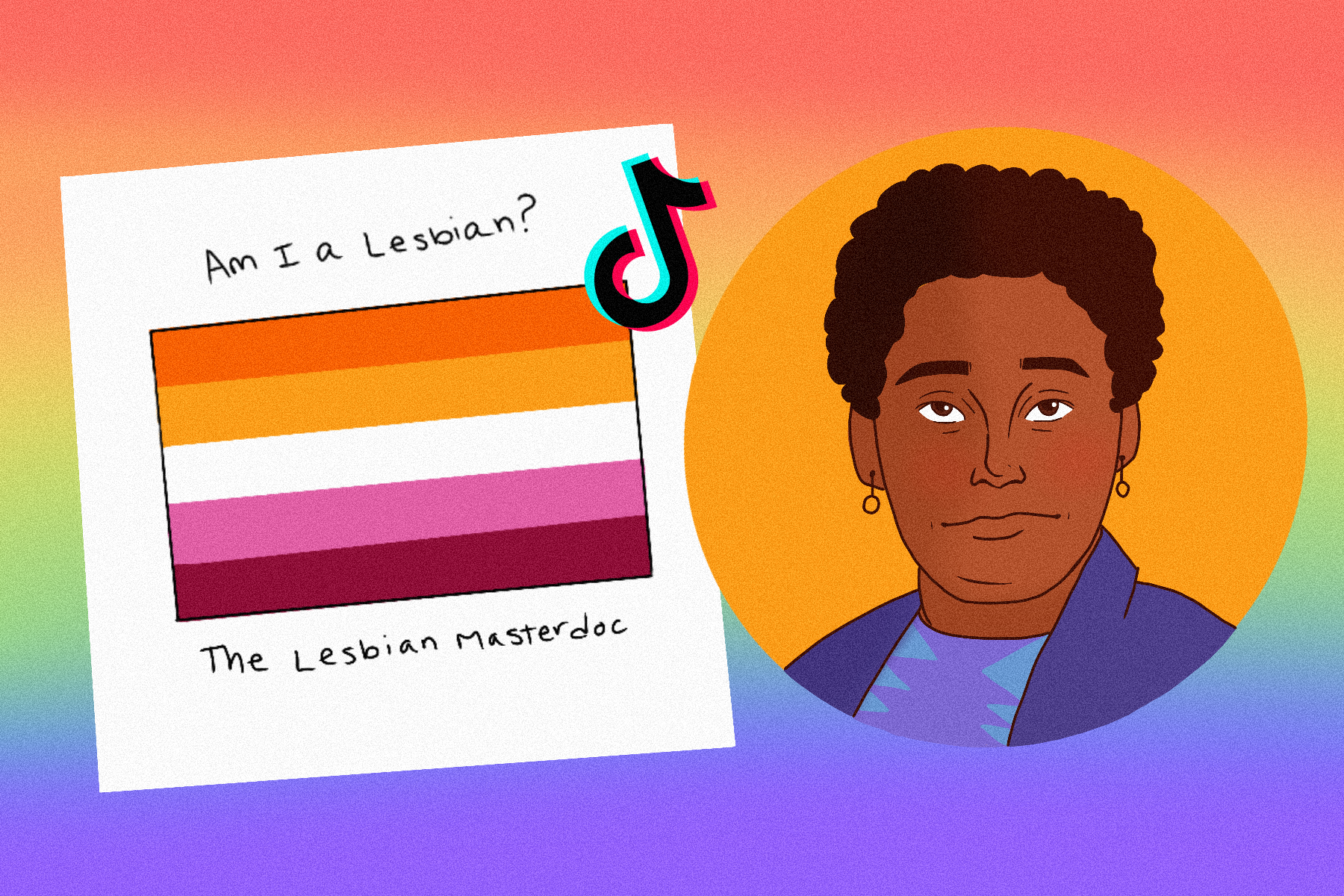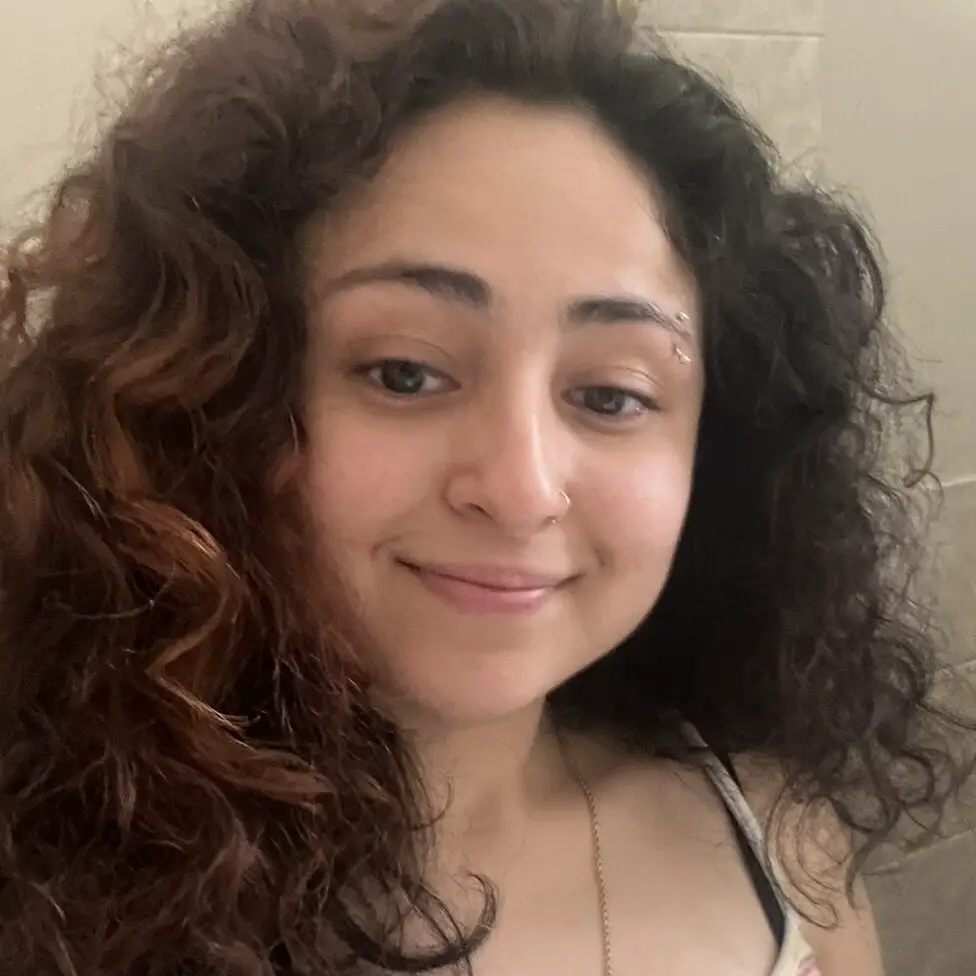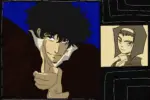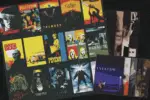Chapelle Roan’s “Good Luck, Babe!” is reverberating and shaking women (and nonbinary/trans individuals) struggling with internalized homophobia. TikTok users are replaying the chorus, “You can kiss a hundred boys in bars / Shoot another shot, try to stop the feeling / You can say it’s just the way you are / Make a new excuse, another stupid reason.” Roan essentially wishes good luck to her ex-babe or situationship, who is attempting to swallow down her feelings or attraction for women.
Midwest Princess Chapelle Roan’s hit song has renewed the online sapphic discussion on compulsory heterosexuality and internalized homophobia. However, compulsory heterosexuality, as a TikTok term, also previously exploded in the zeitgeist during lockdown as young and old attempted to meditate on their sexuality. Users then and now have been introduced to the term thanks to the notorious Lesbian Masterdoc, which artists like Renee Rapp and Kehlani used to solidify their lesbian experiences.
@thedooges Replying to @maggie katy just give me a lil confirmation @chappell roan #chappellroan #katyperrythinkingofyou #goodluckbabe #goodluckbabechappellroan #chappellroantour #theriseandfallofamidwestprincess #thinkingofyou #sapphic #wlw ♬ original sound – chappell roan
The Lesbian Masterdoc is a multipage document initially published on Tumblr in 2018 with lists of beliefs and behaviors that signify ‘being lesbian.’ The document particularly explores what it means to be a lesbian in a heteronormative society and attempts to decipher between attraction and compulsory heterosexuality. Anjeli Luz, the writer of the document, scribbled her 30-page document in a two-day frenzy with sections like “What is Compulsory Heterosexuality?” and “You might be a lesbian if.”
In an interview with Vice, Luz mentioned, “I realized I loved women when I was a teenager, but I never quite knew if my attraction for men was real or a social construct I took in as a facet of my identity.” Luz, who was a high schooler when she wrote the document, simply defined compulsory heterosexuality as forced heterosexuality. The Masterdoc references unique experiences like crushing on Disney villain Shego and feminine men in a frenzy journaling method. The Masterdoc has resonated with some lesbian individuals, and many social media users have shared their attempts to decipher their desires..
Lesbians and bisexual women alike have mentioned that the Lesbian Masterdoc is a worthwhile tool, but not necessarily authentic to sapphic experiences. Luz also later came out as bisexual, which brought on a discussion on whether the author was struggling with biphobia rather than compulsory heterosexuality in the now queer online canon.
The Masterdoc also fails to mention poet Adrienne Rich, who originally coined the term “compulsory heterosexuality” and defined it as a violent institution that weaponized against women’s sexuality. Rich referred to compulsory heterosexuality or “comphet” as a phenomenon that lesbians experience in a misogynistic society that centers on men. Rich wished for individuals to understand the lesbian existence not as an opposition to heterosexuality but as a means to comprehend the suppression of female romantic or sexual desire.
The lack of acknowledgment for previous queer scholars, writers, and artists has led to the misuse of terms that could be further developed or explored. TikTok users have used comphet to describe their crush on a fictional male character. There is also an online discussion on whether gay men or other queer women who are also attracted to men can experience comphet. Rich most likely didn’t deal with being attracted to fictional characters as far as we know, but theories are constantly challenged. Queer scholars today will likely develop comphet through a modern and intersectional lens.
In an online world that shoves Disney and Bridgerton couples and family vloggers on screens, it’s noteworthy to look backward to historic queer writers and forward to queer artists paving a path and unapologetically taking up space. It’s crucial to avoid the erasure of lesbian and queer writers/artists like Rich and Audre Lorde, who left a legacy of anger and breaking silence.
The dread of caving to internalized homophobia and adhering to comphet is addressed in Roan’s bridge as she warns her lover, “When you wake up next to him in the middle of the night / With your head in your hands, you’re nothing more than his wife / And when you think about me, all of those years ago / You’re standing face to face with ‘I told you so.’” Sometimes, you may just need a song to raise hidden ardor.
Thank you, Chapelle Roan!

















